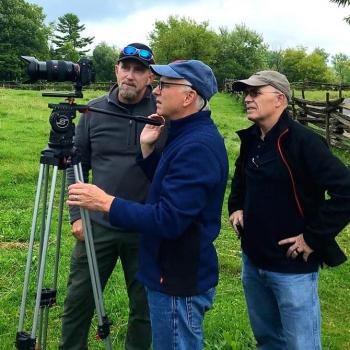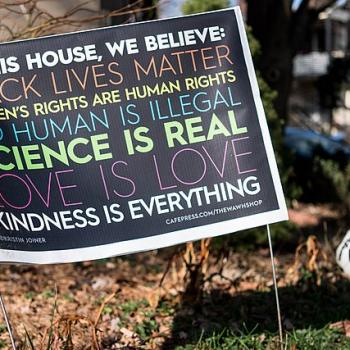Mark Noll calls this "the right choice for the right college at the right time." What does it mean for Gordon (as it says in its vision statement) "to prepare the people of God to do the work of God" in a postmodern twenty-first century?
Committed Christians in our culture will have to do a more effective job of bearing witness to their faith in a compelling, convincing manner. That requires us to be, as the Bible says, full of both grace and truth. The order of those terms (from John 1) is actually very significant. We have to be gracious in our interactions with people of different faiths and of no faith at all. They have to know that we are genuinely interested in the truth and advancing human understanding on a range of academic questions.
Gordon is uniquely positioned within American Christianity to bring that commitment to intellectual inquiry and academic rigor, joined to devout Christian commitment and fidelity to the Christian tradition. There are few institutions that have done it as well and for as long a time as Gordon has. Going forward, we're going to have to build on that legacy and build more bridges to institutions that do not share our Christian convictions, and to scholars who don't agree with us theologically. They have a lot to learn from us, and we have a lot to learn from them.
Gordon is multi-denominational and broadly evangelical. You take the helm of a leading evangelical institution of learning at a time when many question whether the center of American evangelicalism can hold. Some wonder what will be the institutions that hold American evangelicalism together. What is the role of educational institutions like Gordon in shaping the future of American Christianity as it evolves and faces its present challenges?
Christian colleges and universities are ground zero for Christian engagement with wider society. There is no institution in the country more focused on the interaction between faith and culture than Christian institutions of higher learning. It's woven into the DNA of what we have to do as educational institutions.
Christian colleges and universities are primed to be the most significant players in helping people of faith appropriate their theological commitments within the context of advances in science, the arts, humanities, and the spectrum of human endeavor. This is one contribution Christian colleges and universities can make to the wider church. We can lead the way for other Christian institutions seeking to integrate faith and culture.
You've interviewed hundreds of extraordinary leaders. How has the study of leadership prepared you for the practice of leadership? Did you foresee this turn of events in which the object of your study would become your own role?
Even I have been surprised at the serendipity of this appointment. Yet I feel a real sense of calling to it. The research I've done on senior leaders has, I think, prepared me well to be as thoughtful as possible entering into the presidential role. At the same time, there's a lot to learn. I'm deeply fortunate to have fantastic colleagues at Gordon who will help me learn about the institution and the important work they're doing in so many areas.
Among all the people you've interviewed and studied, whose style or whose example might you look to emulate the most in your new role?
I'd like to mention three, but they're all aspirational. In no way am I saying that I am the equal of these folks. But I've interviewed extraordinarily capable leaders, many of whom are also people of faith. They have made a real impression on my life.
One person who enormously impressed me is George Bennett, the founder of State Street Investment Corporation, who at one time managed the endowment of Harvard University. When I interviewed him, I think he was ninety-three. So he had seasoned, sage counsel to offer on a whole host of issues. He spoke about the importance of being faithful in a cultural environment that wasn't always receptive to your faith. That's the context in which most Christians exist today. So I want to attempt to demonstrate the kind of warm and generous spirit that characterized George Bennett's leadership.
Another person who really impressed me is Dr. William Roper, dean of the school of medicine at UNC Chapel Hill, a very learned man who also recognized the importance of being deeply committed to your family while also taking on major leadership roles. He was the director of the Centers for Disease Control for a number of years, and it was at a time when he had young kids. I have a seven year-old and twins who are one. I want to be a great college president, but also a great father and husband. He seems to have done that well.
A third leader who impressed me a great deal was Dr. Condoleeza Rice. She has an amazing work ethic, and developed relatively straightforward strategies that have made her effective even in the midst of extreme time demands. She is very fast, and has held many leadership roles. She began her leadership career as the Provost of Stanford at a young age. I'm no Condi Rice, but I learned a great deal from her.





